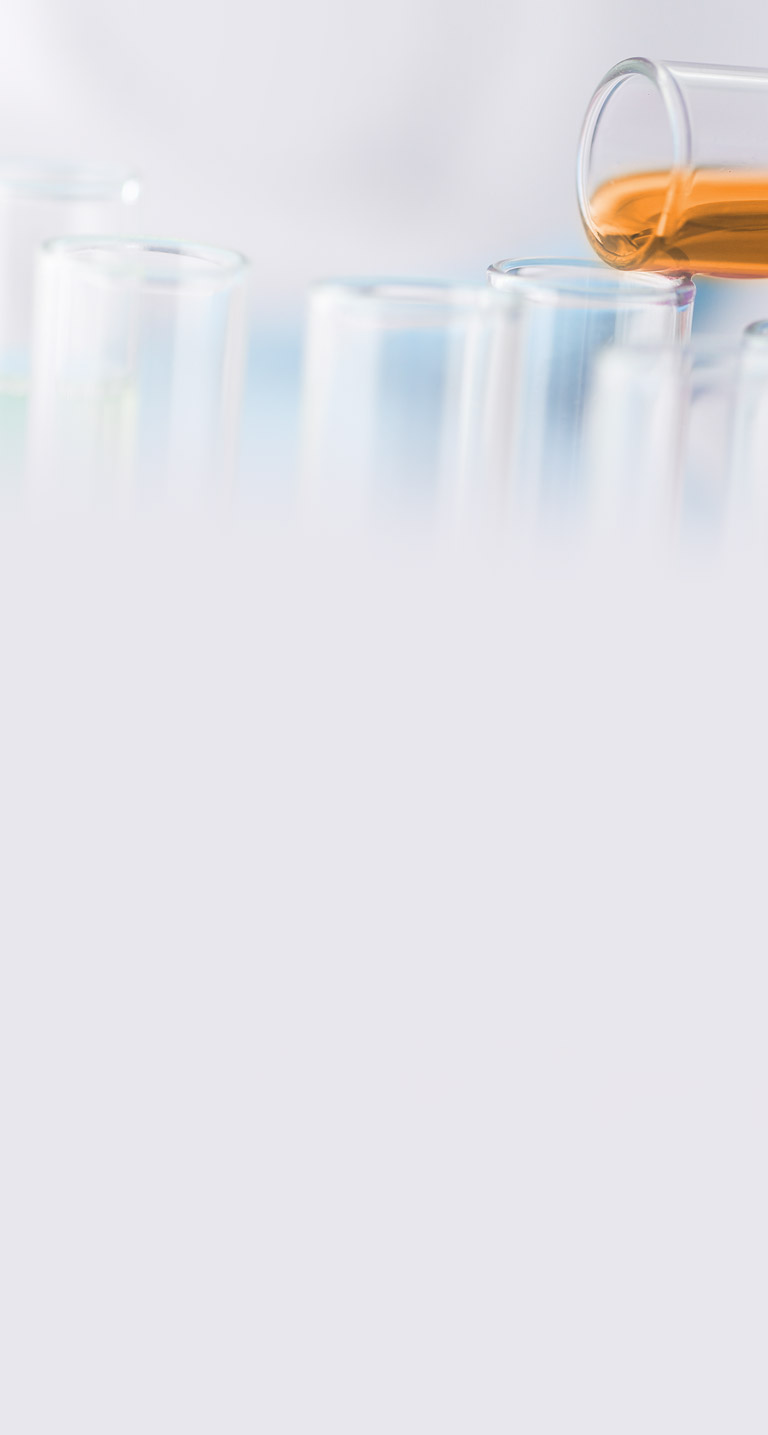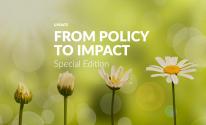
Chapter 2
International impact
Realising ambitions in Health and Care by international collaboration
Due in part to the innovative power of the public-private partnerships and the top sectors, the Dutch economy is doing exceptionally well. In 2019, the Netherlands was the most competitive economy in Europe and high in the top-10 of most innovative European economies. The Netherlands is the second most entrepreneur-friendly country according to the National Entrepreneurial Context Index (NECI) of the Global Entrepreneurship Monitor 2019/2020 and is doing well in the field of digital technology and the impact of this on society.
As a result of various developments, including the arrival of the European Medicines Agency (EMA) in the Netherlands and the Mission-driven Top Sectors and Innovation Policy of the Dutch government, Top Sector LSH compiled the International Strategy 2020-2023. This strategy is a reappraisal of the International Strategy 2015 for cooperation and trade that contributed to capitalising on the economic opportunities and, in the field of R&D, was aimed at strengthening our business and society.
In the context of the Mission-driven Top Sectors and Innovation Policy, solutions are being sought for challenges that play a role in many countries, such as ageing and socioeconomic health differences. Products and services will emerge from this policy that are appropriate for international markets, and in turn, the Netherlands can benefit from the knowledge of other countries. By working together smartly, making use of joint resources (market knowledge and tooling), and carefully coordinating the international agenda, effective use can be made of limited resources available.

INTERVIEW
with Louis van de Wiel, Vice President & Site Head EU Manufacturing at Kite, a Gilead Company
Cell Therapy: a team sport
‘With a lot of passion and drive’ says Louis van de Wiel on how Kite realised the construction of a high-tech manufacturing facility for CAR T-cell therapy in just two years’ time. ‘A team of over 240 professionals spent over 350.000 man-hours to construct a brand-new manufacturing facility to produce CAR T-cell therapy for European patients.
Tailor made for patients
The facility is built and designed for a capacity of up to 4,000 treatments per year and has the possibility to double this amount in the future. CAR T-cell therapy is an individualised method of treatment that harnesses the power of the body’s own immune system to identify cancer cells. This innovative treatment is for people with certain types of blood cancer.
Individualised treatment
The T cells are removed from the patients in the hospital. These T cells are then transferred in temperature-controlled conditions to Kite’s facility in Hoofddorp. Here they are modified and multiplied by millions. Subsequently they are transferred back to the hospital where the same patient receives these modified cells. After infusion the cells start to recognise and attack the cancer cells.
4,000
treatments per year
Team sport
Kite works in close collaboration with treatment centres across Europe, and so far over 100 hospitals are qualified in more than 16 countries. 'Once we receive the patient cells, it’s a continuous process until we get to the final product. It’s important that the quality organization and manufacturing supply chain work closely as a team to get the modified cells back to the hospital and to the patient.'
The remit of the quality team also includes overseeing how cell therapy product is delivered to patients. This particular step is unique to cell therapies and ensures that treating hospitals understand how to receive and store the product at each stage, as well as maintaining the vital chain of custody throughout.
'Cell therapy is truly team sport. You can only do this in close collaboration with all parties involved,’ says Van de Wiel. ‘And diversity is crucial for a strong team. Different opinions and views strengthen the ability and creativity of your team. Currently, employees with more than 20 nationalities and backgrounds work at the facility in Hoofddorp. It drives you to the best solution.’

Friendly environment
As a country, the Netherlands is proud to have the Kite facility located in Hoofddorp. ‘We chose the Netherlands as a location for our facility for a few reasons. Amsterdam is a major European center of business and technology. With the facility located next to Amsterdam Airport Schiphol, a major European transport hub, it will provide quick and convenient access to all of Europe.
Additionally, with the arrival of the EMA, the Netherlands is increasingly becoming a European center in biotech and pharmaceuticals, which has given new energy to the exchange of knowledge through activities such as collaboration with research institutes and universities. And there is a strong volume of top talent at all of these institutions.
Due to the contribution of many people and to the friendly environment here in the Netherlands, we were able to build the organization and the facility in this short time frame. Health~Holland is proud to aid the creation of this friendly environment.
Mission
‘I believe that cell therapy has the potential to be used as a foundation to treat many types of cancer, and we are committed to realizing its full potential through continued research’ says Van de Wiel. ‘I deliberately chose to work in cell therapy to help address the tremendous unmet medical need presented by cancer, especially since I’ve lost relatives to the disease myself. I would like to contribute to the research that helps us potentially cure cancer in the future’.
Cell therapy
addressing the unmet medical need presented by cancer

EMA in the Netherlands boost for LSH sector
The Netherlands proudly welcomed the European Medicines Agency (EMA) in January 2019. On 15 November 2019,the Netherlands officially delivered the new headquarters for the EMA. In this short period of time, the relocation of the EMA to the Netherlands has already boosted the Dutch innovative ecosystem where public and private parties work together to create social and economic impact across borders. The Action Programme “New Opportunities for Top Sector Life Sciences & Health” has been set up to capitalise on the economic and social opportunities that the arrival of EMA offers and to further strengthen the Dutch LSH sector.
The Netherlands Foreign Investment Agency (NFIA) already sees that more (non-European) LSH companies are showing an interest in expanding their activities to the Netherlands. For example, the Netherlands has welcomed Alnylam Pharmaceuticals. Furthermore, several large pharmaceutical companies that are already active in the Netherlands, such as MSD, Janssen and Kite Pharma, have announced significant investments in the expansion of production facilities. Companies are also further expanding their EMA-related activities, such as regulatory affairs and access, in the Netherlands.





